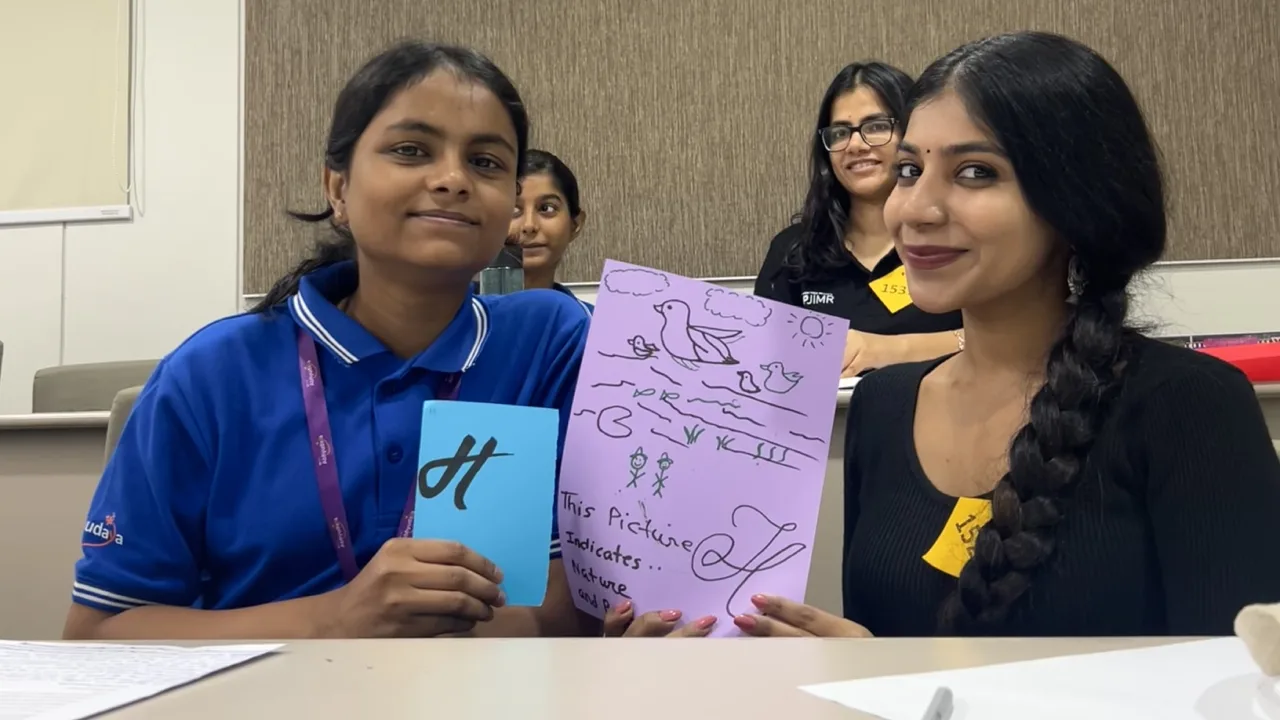Find the programme that meets your requirements and aspirations.
Apply nowStudent blogs
- SPJIMR
- Blog
- #UserCentredAndInclusiveInnovation: From metrics to meaning — How responsibility shapes great products
#UserCentredAndInclusiveInnovation: From metrics to meaning — How responsibility shapes great products

When we consider product management, the first thing that usually comes to mind is coming up with new products or improving existing ones and then quantifying the success using various metrics. However, after starting my B-school journey and getting to interact with quite a few PMs, I have noticed the extreme influence that metrics have in a PM’s professional life. The effect is so profound that many have described how surprised they were when they joined their organisations, seeing PMs talk about key metrics with different teams day in and day out, discussing their effect, and making predictions based on them.
One of the most important things that most PMs are neglecting today is the idea of being a ‘responsible product manager’.
Through the digital product management course from our dean, Prof. Varun Nagaraj, my colleagues and I have understood that product management is not only fun, interesting, and effective but also comes with a great sense of responsibility. I think being a responsible product manager is all about creating successful results while maintaining ethical standards, being respectful of resources, and thinking about long-term implications.
In my opinion, responsible product management involves several important factors, such as:
- The product manager’s responsibility towards stakeholders
- Ability to make ethical decisions
- Implementation of sustainable practices
- Continuous improvement commitment
- Transparency and integrity in every area of product development
In the last few weeks, I have realised that modern-day product managers should not just aim for desirability, feasibility, and viability. An equally important but also ignored component in the DFV framework is ‘responsibility,’ hence the DFVR framework—a full representation of what product management ought to be.
Talking about my own experience, in my product management course, after researching Indian medical and e-pharmacy apps like Tata 1mg, Pharmeasy, Netmeds, etc., we found that senior citizens would greatly benefit from these apps. These apps enable them to get medicines at home and undergo lab tests with minimal effort. However, one major hindrance is that not all senior citizens are familiar with technology. Usually, they depend on younger people living with them to assist them. In most instances, such as mine, parents or grandparents do not necessarily reside with us, so it is hard for them to use these apps on their own.
This prompted me to suggest the inclusion of family profiles in medical apps, just like the profiles on Netflix or Amazon Prime—along with an easy-assist mode designed specifically for elderly people. This mode would provide a simple, easy-to-use interface, allowing elder users to use the app independently without outside assistance. Furthermore, if I were the admin, I could ask for permission to access my family members’ profiles (since many would prefer to keep their health data confidential). This would enable me to send them targeted notifications and reminders for key actions, such as ordering medications that are overdue or scheduling and reminding them about upcoming laboratory tests.
This method not only improves the capability of medical apps but also personalises family healthcare by bringing an emotional angle to it. We considered this concept a manifestation of the ‘responsibility’ pillar in the DFVR approach, focusing on meeting a product manager’s responsibility to stakeholders.
Going even beyond this, as I have mentioned before, ethical product management carries over to several other key areas, inspiring real-world applications, including:
- Ethical decision-making – Microsoft’s Xbox adaptive controller: The ethical decision of the product team at Microsoft was to create an inclusive gaming controller meant for individuals with restricted mobility, reflecting on inclusive design principles even for a niche market.
- Sustainable practices — Patagonia’s worn wear program: Product managers at Patagonia launched a campaign inviting customers to repair, re-use, and recycle products instead of buying new ones, turning consumer-based business norms on their heads.
- Continuous improvement — Tesla’s over-the-air software updates: Tesla’s product management team has built a system that continuously improves automobiles after purchase via software updates, at times introducing whole new capabilities to current cars.
- Transparency and honesty — Intel’s Security Vulnerability Disclosure: When Intel’s product management team discovered the Meltdown and Spectre vulnerabilities, it decided to disclose the problems openly and collaborate openly on remedies, even if such actions posed potential reputational harm.
Thus, we can see that responsible product management is not simply about bringing innovative solutions to market—it is also about ensuring those solutions are ethical, sustainable, and inclusive. In my readings and discussions, I have been able to see that a genuinely responsible product manager considers more than metrics and profit to ensure long-term effects on users, stakeholders, and society.
From trying to address accessibility challenges in medical apps to learning from industry leaders like Microsoft, Patagonia, Tesla, and Intel, it has become evident to me that responsible product management has the power to drive meaningful change. By prioritising user needs, sustainability, and ethical practices, product managers can create products that are not only successful but also positively impactful.
About Post Graduate Diploma in Management (PGDM)
SPJIMR’s Post Graduate Diploma in Management (PGDM) is a two-year, full-time residential programme equivalent to an MBA. PGDM is approved by AICTE, accredited by NBA and AMBA, UK and consistently rates among India’s top 10 management programmes. The programme offers a holistic approach to leadership development with its innovative blend of classroom learning and thoughtfully curated immersive experiences.




